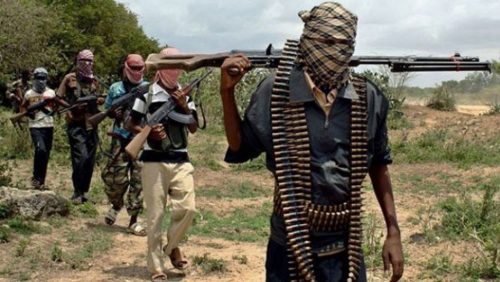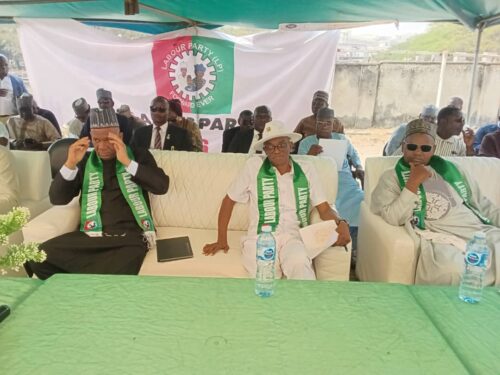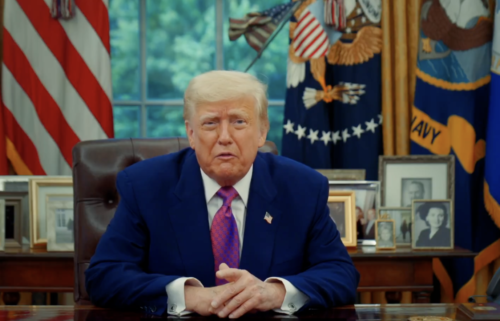The Labour Party’s Vice Presidential candidate in the 2023 election, Senator Datti Baba-Ahmed, on Wednesday formally declared his interest in contesting the presidency in 2027, amid ongoing realignments within Nigeria’s opposition space.
Baba-Ahmed, who was the running mate to former Labour Party presidential candidate Peter Obi, made the declaration at a rally held at the party’s national secretariat in Abuja.
His announcement comes barely one week after Obi announced his departure from the Labour Party for the African Democratic Congress.
This move has triggered intense debate over the party’s future and the direction of the wider opposition ahead of the next general election.
Addressing party members and supporters, Baba-Ahmed said his aspiration was neither reactionary nor dependent on Obi’s political decisions, stressing that his presidential ambition predates the 2023 election.
He said, “I have made myself to contest for the office in 2027. I’m not following anybody’s trajectory or stepping into anybody’s shoes.
“Can I please remind you that before His Excellency Governor Peter Obi filed for the presidency, I aspired for the presidency before him? The records are there for you to see.”
The former lawmaker recalled his earlier attempt to secure his party’s presidential ticket, noting that he had contested in the Peoples Democratic Party primaries years before aligning with Obi in the Labour Party.
“In October 2018, I participated in the primaries of the then PDP in Port Harcourt and walked to Obi for his vote, and he smiled at me. What a gentleman he was.
“If you heard me well in what I just submitted, I saw a rare opportunity for national unity to have elected Peter Obi in 2023. And that is why I decided to flow with it,” he said.
Baba-Ahmed also addressed concerns about religion and ethnicity, insisting that Nigeria’s constitution guarantees every qualified citizen the right to seek elective office.
“Yes, I am a practising Muslim. But I’m a Nigerian, and the constitution allows me to contest. You asked about my ethnicity. Yes, I am a Hausa man, and the Nigerian constitution also allows me to contest. I’m doing this because Nigeria needs help,” he said.
However, Baba-Ahmed noted that while he had made his intention known, he would adhere strictly to party and electoral guidelines.
“However, as a law-abiding citizen and a loyal party member, until the timetable is released by INEC and the leadership of the Labour Party calls for interested aspirants, I will not say anything about it. But remember I told you that Nigerians know the truth,” he stated.
Reacting, the National Chairman of the Labour Party, Julius Abure, commended Baba-Ahmed for remaining in the party despite speculations that he might defect following Obi’s exit.
Abure said the development demonstrated that the Labour Party remained intact, adding that several key figures, including the Abia State Governor, Alex Otti, had also chosen to stay back.
He said, “Only recently, the Abia State Governor, Alex Otti, told the world that he joined the party before Peter Obi did – this is true. Otti also said he was not going to defect to Peter Obi.
“On the night Peter Obi defected, I received a telephone call from our Vice-Presidential candidate in the 2023 elections, Dr Datti Baba-Ahmed. He said he is not leaving the party because it was the platform upon which he, along with the former candidate, received 10 million votes from Nigerians, which was reduced to 6 million votes. We all know what happened.”
Abure further disclosed that Baba-Ahmed personally suggested a meeting of party leaders and members to reaffirm unity within the party.
“In fact, he asked me to organise an event where members can come together. He first suggested that we meet at the Transcorp Hilton Hotel with a few senior members that he would foot the bill.
“But I suggested that we hold the event here at the party Secretariat and invite our members, artisans and ordinary people who truly own the party, and he agreed. That is why we are having this gathering here today.
“The Labour Party is intact, we will not let Nigerians down. We will remain together and provide a genuine alternative for Nigerians,” he said.
Baba-Ahmed’s declaration has added a fresh dimension to the emerging 2027 presidential contest, as parties begin early positioning amid shifting alliances within the opposition.

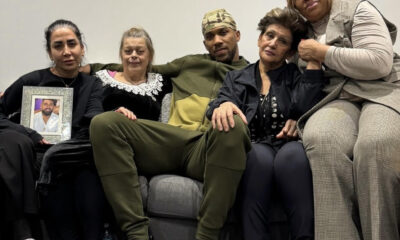
 BIG STORY3 days ago
BIG STORY3 days ago
 BIG STORY3 days ago
BIG STORY3 days ago
 BIG STORY3 days ago
BIG STORY3 days ago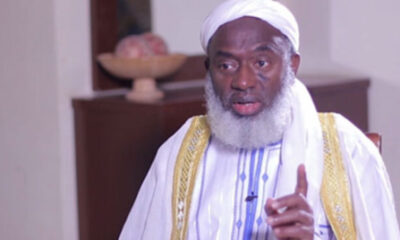
 BIG STORY3 days ago
BIG STORY3 days ago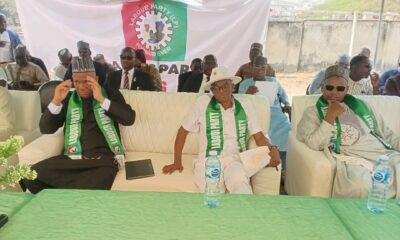
 BIG STORY4 hours ago
BIG STORY4 hours ago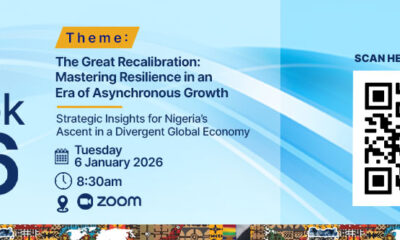
 BUSINESS4 days ago
BUSINESS4 days ago
 BIG STORY4 hours ago
BIG STORY4 hours ago
 BIG STORY1 day ago
BIG STORY1 day ago


















